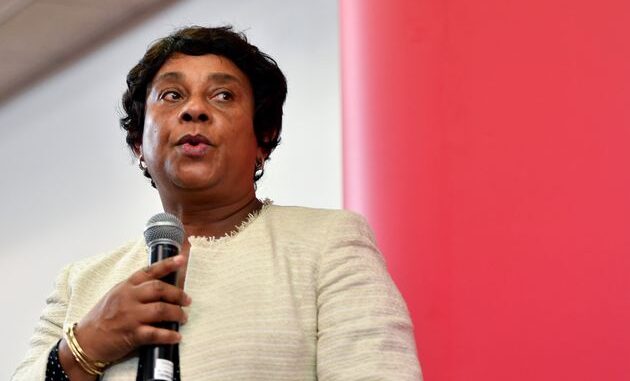
In many ways the NHS is a community of its own; a unity of 1.4 million devoted workers, composing of 202 nationalities. The diversity of our NHS is to be celebrated, instead, we find ourselves not in celebration, but in condemnation. The NHS is there for us all; except this core tenet of the NHS is being lost, policies hostile to the NHS perpetuated by an equally hostile government, has meant some of us are less equal than others. Namely, BAME staff. And, the Covid-19 pandemic has exposed this hostility and the disproportionately poor working conditions experienced by BAME NHS staff: that’s around a quarter of nurses and midwives, and one half of doctors1. The Doreen Lawrence Review highlights the deep structural inequalities that persist within healthcare, and wider society. This is something Keep Our NHS Public vociferously oppose. We are committed in the fight against structural racism within, and beyond, the NHS.
Despite the impressive aforesaid representation of BAME individuals within the NHS, this seems to be in deep parallel to senior managers within the NHS; just 6.5% of senior managers are from BAME backgrounds[1]. Keep Our NHS Public find this an unacceptable incoherence. This results in a critical lack of a diversity and cultural focus on decision-making. No wonder then, that 64% of Black Britons think the NHS does less to protect their health than that of white people1.
The Doreen Lawrence Review has emphasised the need for learning from the pandemic. We must be cognisant of the structural inequalities in the NHS predating the pandemic; the pandemic has merely brought awareness to a much-neglected issue. In August 2020, the all-cause mortality was up from previous years four-fold for black men and three-fold for Asian men; though, just less than two-fold higher for white men. A similar gradient was evidenced in women too: three-fold higher in black women, two and a half fold higher in Asian women compared with just over one and a half fold higher in white women[2]. This same disproportionate mortality rate was unfortunately evidenced amongst NHS staff specifically: 68% of all deaths were from BAME members of staff1, and 90% of Covid-19 deaths in doctors were from BAME communities[3]. Appalling.
Keep Our NHS Public are committed to eradicating the systemic racism existing within the healthcare system. We are also committed to uphold and campaign to implement the twenty recommendations put forth by The Doreen Lawrence Review. The policy recommendations relate to wider systemic change across public institutions: the NHS included.
The story of the NHS is the story of every single one of us. It vehemently must not be the case that some of our narratives are of neglect and bias. As it stands, equity is failing in the NHS. The hostile environment within the NHS is merely a mirror of the wider hostile environment perpetuated by the Conservative government and their austerity agenda, which disproportionately affected BAME households[4]. The inequalities of the pandemic cannot be taken in isolated; these are exacerbations of pre-existing inequalities that have ridden our society for far too long.
In Keep Our NHS Public’s 2020 manifesto: “vision for a post-Covid NHS”, we identified some of the issues spoken of in The Doreen Lawrence Review: the lack of risk assessment for BAME staff in hospitals (just 23% of hospitals were risk assessing BAME staff), poorer access to PPE than white colleagues, lack of BAME representation amongst senior management3.
The fight against racism within our NHS and beyond continues. And we, at Keep Our NHS Public, want to express our continued support to end structural racism. Our vision of the NHS isn’t one of being owned by the embezzlers, reserved for the those with the means to be embezzled. Instead, we want an NHS owned by the people, for the people: for all the people.
Jatinder Hayre is a Keep Our NHS Public member, medical student and researcher.







Leave a Reply